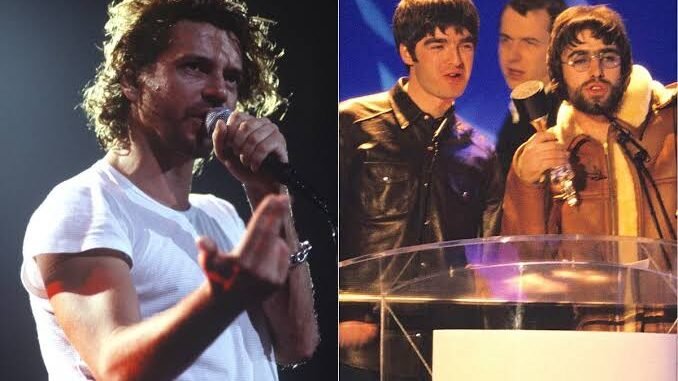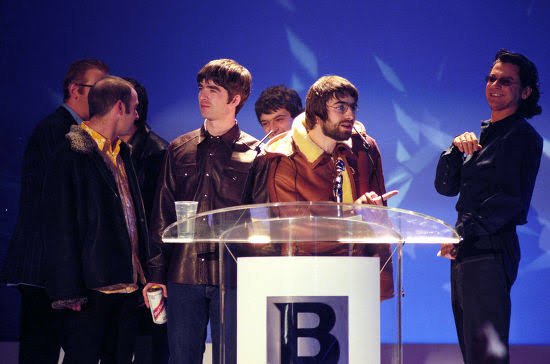
The 1996 Brit Awards was a night of high tension and rockstar egos—and it produced one of the most infamous moments in British music history. During the ceremony, INXS frontman Michael Hutchence took the stage to present Oasis with the award for Best British Video. What was meant to be a routine moment quickly turned sour when Noel Gallagher, never one to shy away from controversy, fired off a cutting remark: “Has-beens shouldn’t be presenting awards to gonna-bes.”
The jab, directed squarely at Hutchence, stunned the audience and marked a public humiliation for the Australian rock icon. At the time, INXS was experiencing a decline in commercial success, while Oasis was at the peak of their ‘90s Britpop dominance, riding high off the massive success of their album (What’s the Story) Morning Glory?.
Though Hutchence remained composed onstage, the insult reportedly left a lasting sting. Friends and collaborators later revealed that the comment deeply affected him. Hutchence, known for his charismatic stage presence and moody vocal stylings, had helped shape rock music throughout the 1980s with INXS, delivering hits like “Need You Tonight,” “Never Tear Us Apart,” and “Devil Inside.” But Gallagher’s remark painted him as yesterday’s news.
Rather than respond with words, Hutchence made his statement in the way he knew best—through music. Not long after the Brit Awards, he was in the studio with INXS recording their 1997 album Elegantly Wasted. According to band insiders, during the sessions, Hutchence quietly altered a lyric in the title track. The phrase “I’m elegantly wasted” was subtly changed in a vocal take to include a hidden dig: “I’m better than Oasis.”
Though the altered line was not part of the official album release, the re-recorded version became the stuff of legend among fans and industry insiders. It was never formally released, but those close to the band confirmed its existence as a sly, private act of defiance from Hutchence—an artistic rebuttal to a very public slight.
Hutchence’s response was characteristic of his complex personality: understated yet pointed, emotional but laced with irony. Tragically, he died the following year in 1997, leaving behind a legacy of musical brilliance and a life often marred by personal and public battles.
Today, the story of the Oasis insult and Hutchence’s quiet revenge adds another layer to his legend. It reminds us that behind the glitter and bravado of rock stardom lie fragile egos, fierce pride, and a deep need to be seen—not as has-beens or gonna-bes, but as artists worth remembering.
Leave a Reply